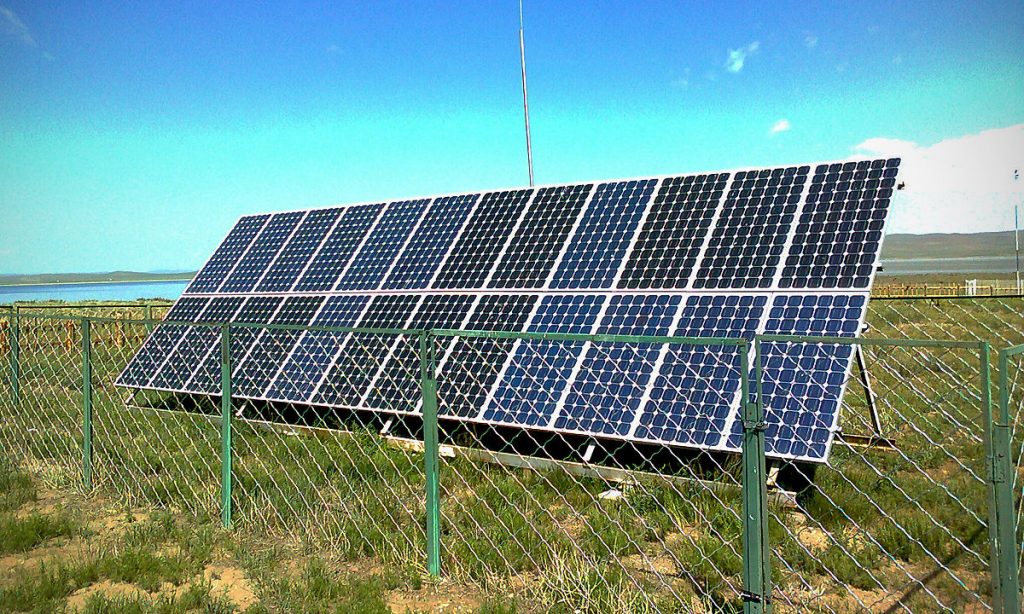According to the International Energy Agency (IEA), 585 million people in Sub-Saharan Africa lack access to electricity, with the continent home to 48 per cent of the global population that has no access to electricity. The region on average has a grid access rate of 20 per cent. Yet in sustainable, easy-to-maintain and increasingly cheap solar, many feel they have found the answer to the problem.
A number of startups are springing up across the African continent to take advantage of the growing investment in the sector, which only set to increase through the likes of the US-Africa Clean Energy Finance (ACEF) initiative, Dubai-based Access Power and French renewable energy investment firm EREN, and the City of Johannesburg. Here are five of the most exciting small businesses turning the lights on across Africa.
M-KOPA Solar
M-KOPA Solar is the market leader of ‘pay-as-you-go’ energy for off-grid customers, combining mobile payments with GSM sensor technology to enable the leasing of solar power systems. It has connected more than 200,000 homes in Kenya, Tanzania and Uganda to solar power since launching in 2012.
The startup allows users to pay for their solar power through an annual payment plan, which includes a deposit of US$35 followed by 365 daily payments of US$0.43. These fees are paid using mobile money, with customers owning their system outright once they complete the payments.
Disrupt Africa reported in February M-KOPA Solar closed its fourth round of investment through a US$12.45 million equity and debt deal led by LGT Venture Philanthropy, while in January it became the first company from Sub-Saharan Africa to win the Zayed Future Energy Prize. It is using the US$1.5 million winnings to launch a training and development programme called M-KOPA University.
Off Grid Electric
Tanzanian off-grid solar energy provider Off Grid Electric is certainly ambitious, with plans to provide reliable power to one billion people in Africa. And, having raised US$16 million in funding at the end of last year, it now has the resources to truly scale.
Like M-KOPA, Off Grid Electric specialises in micro-solar leasing. After a customer has paid a US$6 installation fee, the company installs a self-sustaining solar system, which comes with panels, lithium battery, super-efficient lights, and a meter. To use it, customers must send Off Grid Electric payment via mobile in order to receive a passcode to enter into the meter to unlock their energy.
The US$16 million funding round was led by SolarCity and Zouk Capital – both having made previous investments in the company; while Vulcan Capital – the private investment firm of Microsoft co-founder Paul Allen – also made a second investment. Off Grid Electric chief executive officer (CEO) Xavier Helgesen says in Tanzania the company has achieved the highest solar adoption rates in the world, with customers able to access a reliable energy source for less than US$0.20 per day.
Solynta Energy
Solynta Energy launched in Nigeria in 2013, and installs solar systems for homes and businesses. The startup has so far installed solar systems in homes, businesses, schools, clinics and filling stations, without major corporate investment, and has also installed the first solar-powered filling station in Abuja, only the second in West Africa.
Solynta Energy has plans to expand to South Africa this year from its existing markets in Nigeria and Ghana, with CEO and founder Uvie Ugono saying a great deal of its work to date had been in proving the concept of solar and establishing its reputation. The company also hopes to list on the London Stock Exchange within the next two years.
SolarNow
Another East African startup to have identified the opportunities for provision of solar power in the region, Uganda’s SolarNow has also attracted the interest of investors. Invested Development, Acumen Fund and Novastar Ventures have in total injected US$3 million into the business, which became a for-profit entity in 2011.
SolarNow sells solar systems to rural households and businesses in Uganda with an 18-month credit facility in order to make them affordable. It has 45 branches covering almost the entirety of Uganda, and plans to expand to at least one other East African country in 2015. So far the startup has sold 6,100 solar systems.
The average system costs US$800, but its most popular product costs US$500. Monthly sales are between 300 and 400 systems, and expected to grow to between 500 and 600 per month during 2015, when the company expects to become sustainably profitable.
Juabar
Another Tanzanian startup, Juabar, takes a slightly different approach to the others on this list when it comes to providing solar. The company designs and builds solar charging kiosks, which it then leases to a network of entrepreneurs who use them to offer electricity services.
In rural Tanzania only two per cent of the population has access to electricity, while mobile phone penetration is over 60 per cent. Juabar believes this disparity between electricity access and mobile phone penetration means people spend too much time and money travelling to charging locations, and is looking to provide business opportunities in Tanzanian communities that lack convenient electricity access.
The startup currently leases out 30 kiosks to Tanzanians, but recently ran a crowdfunding campaign in a bid to increase that to 50. The company received initial funding through the Centre for Art and Public Life at California College of the Arts, and has since focused on creating a network of entrepreneurs who operate charging kiosks across the Morogoro and Pwani regions of Tanzania.


